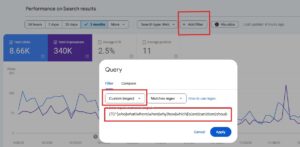Social media management and search engine optimization (SEO) are often thought of as two separate strategies. SEO is used for websites, and social media is used for sharing, commenting, and following trends. However, if we consider that both a website and social media are used by brands to sell products and services, we start to ask ourselves why these two wouldn’t go hand-in-hand.
The truth is, while you can have one without the other, your social media strategy can largely benefit from smart SEO tactics. In an ever-changing world of algorithms, you need as many tools in your arsenal as possible. If you don’t have a high-quality website to back up a great social media post—or, if you don’t have the social media accounts to back up a great website—then you’re missing out.
Ultimately, SEO and social media have a very complementary relationship, and it’s important to take advantage of both to truly see the engagement results you’re looking for.
How Does SEO Impact Social Media?
On a basic level, SEO is the process of optimizing a website so that it is more visible to Google. There are many tactics that are used as part of this optimization, including relevant keyword usage, internal linking, backlinking, and more.
Above all else, however, is content creation. Without high-quality, well-optimized content, Google may not find your site to be credible to users, thereby changing how high you may rank in search engine results pages (SERPs).
Content is where SEO impacts social media the most. This is because SEO enhances content discoverability, which helps make social profiles more visible on search engines. This, in turn, facilitates increased organic reach across multiple platforms.
Optimized website content and structure improve the likelihood of social media content being shared, increasing engagement and expanding the overall audience reach through improved search engine rankings.
How Does Social Media Impact SEO?
Conversely, social media has an impact on search rankings and SEO. Social media can influence website traffic, brand visibility, and link building. Search engines pick up on when a large amount of traffic is directed to your site from a social platform, as this gives your site more credibility and relevancy.
While social signals themselves may not directly affect search engine rankings, active social media presence can drive website visits, enhance brand recognition, foster content sharing for backlinks, and signal content relevance and quality. This, collectively, contributes to improved SEO performance.
The biggest takeaway here is to make sure you’re posting content that is interesting and click-worthy. By doing so, you are increasing the chances of a user finding your social profile, interacting with your content, and potentially even investing in your product or service.
Many brands may find success because of what’s trending. Nowadays, social platforms come with a search feature that allows users to look up whatever they want. If you’re using the right SEO tactics on social media, your product or service is more likely to show up during a user’s research. If they find your product or service, they will likely visit your social media profile to learn more.
Now, there are two ways that this could eventually lead to a conversion for your brand:
- After learning more from your social profile, the user may be interested in your product or service. From there, they will follow a call-to-action, or a link, from your profile that directs them to your website, ideally to a landing page with compelling content that keeps the user engaged. From there, they will decide whether to invest or not. If the content is great, they are more likely to make a purchase.
- After learning more from your social profile, the user may be interested in your product or service but isn’t quite sure if they want to invest yet. They may then go to Google to do additional research and compare product or service options. If your site is optimized with high-quality content and it’s seen as authoritative in Google’s eyes, the user may see your site in the top rankings. From there, they click on the website and will decide whether to buy or not. If they land on a page with strong, compelling content, they are more likely to pull the trigger.
You can see how there are multiple ways a user will travel through the customer journey, but the moral of the story is the same: social media and SEO go hand-in-hand.

5 Strategies for Integrating SEO With Social Media
Now that you understand the connection between SEO and social media, it’s important to know how to integrate the two together for a successful strategy. Fortunately, there are several ways to go about doing this.
1. Coordinate Content Calendars
Creating sharable content across your website and social media platforms helps boost visibility, backlinks, engagement, and more. For this reason, it’s important to coordinate your content calendars across all platforms. This not only minimizes confusion in your strategy internally, but also ensures a consistent user experience.
Coordinating your content calendars also ensures high-quality content across the board. You want your content to resonate with multiple audiences here, so it’s important to make sure all content is of high quality and versatile enough to do so.
When you keep your content calendars consistent, you are also ensuring a seamless journey for your followers.
2. Use Consistent Keywords and Hashtags
Just as you would when optimizing your website, you should use high-quality, relevant keywords on social media as well. The keywords you target in your social media posts and bio, for instance, should be a direct reflection of your business model and what you are linking back to.
With keywords, it’s important to remember that variety is best. Use a mixture of short-tail and long-tail keywords on both your website and your social media platforms.
Additionally, use keywords with varying keyword difficulty and search volume. This allows you to cover all your bases. While it may be more challenging to rank for keywords that have a higher volume and difficulty level, it widens your keyword footprint. Simultaneously, you will target longer-tail keywords with lower volume and difficulty that can be easier wins for your brand.
The same is true for hashtags. Target various hashtags, including those with both high and low search volumes. Pick a group of hashtags that you can consistently target on each social media post, such as your brand’s name. Then, pick other hashtags that are personalized to what that specific post is about.
Consistent keywords and hashtags across both platforms guarantee that any user can search for your product or service on Google and on social media, creating a consistent customer journey across the board.
3. Optimize Your Social Media Profiles
An important social media optimization strategy for SEO is paying attention to how you present your brand on the profile itself. This includes what your bio may say, how you categorize your brand, and what personalized hashtags you use.
Social media platforms have become search engines in and of themselves. When a user types something in the search bar, your profile is more likely to pop up if it is well-optimized.
Use relevant keywords in your bio that describe your brand. On social platforms that require addresses, hours, and phone numbers, fill out this information and keep it updated as needed.
4. Encourage Social Sharing and Engagement
It’s no surprise that social sharing is great for SEO. Expanded reach leads to more people discovering and potentially engaging with your content.
It’s always a best practice to encourage your followers (and even those who don’t follow you) to “like” and “share” your content. Social shares contribute to increased visibility and can positively impact SEO rankings. They contribute to a perception of credibility and authority, which search engines highly value.
Integrate sharing buttons not only on your social media platforms but also on your website. Search engines consider social sharing as an indicator of content quality and relevancy. This means that the number of likes, shares, comments, and overall engagement on social media can influence how you rank in SERPs.
Finally, encourage location-based engagement through local SEO strategies. This includes using local keywords and hashtags. Local businesses can especially benefit from social media engagement, particularly in terms of local reviews and check-ins.
5. Use Backlinks to Increase Referral Traffic
Link building through social media is a great way to generate valuable backlinks to your website, thereby increasing referral traffic. When users share content on social platforms, it creates opportunities for others to link back to the content on their websites and blogs.
Quality backlinks enhance a website’s authority, which is a key factor for SEO. Every website is measured based on domain authority (DA). The more authoritative and credible your site is, the higher your DA score. Backlinks are a great way to build credibility, because they show that other sites value your content.
Looking for more SEO tools for social media management? At Rank Fuse Digital Marketing, we specialize in providing sites with the right tools to boost their engagement and authority. Contact us today to learn more.




